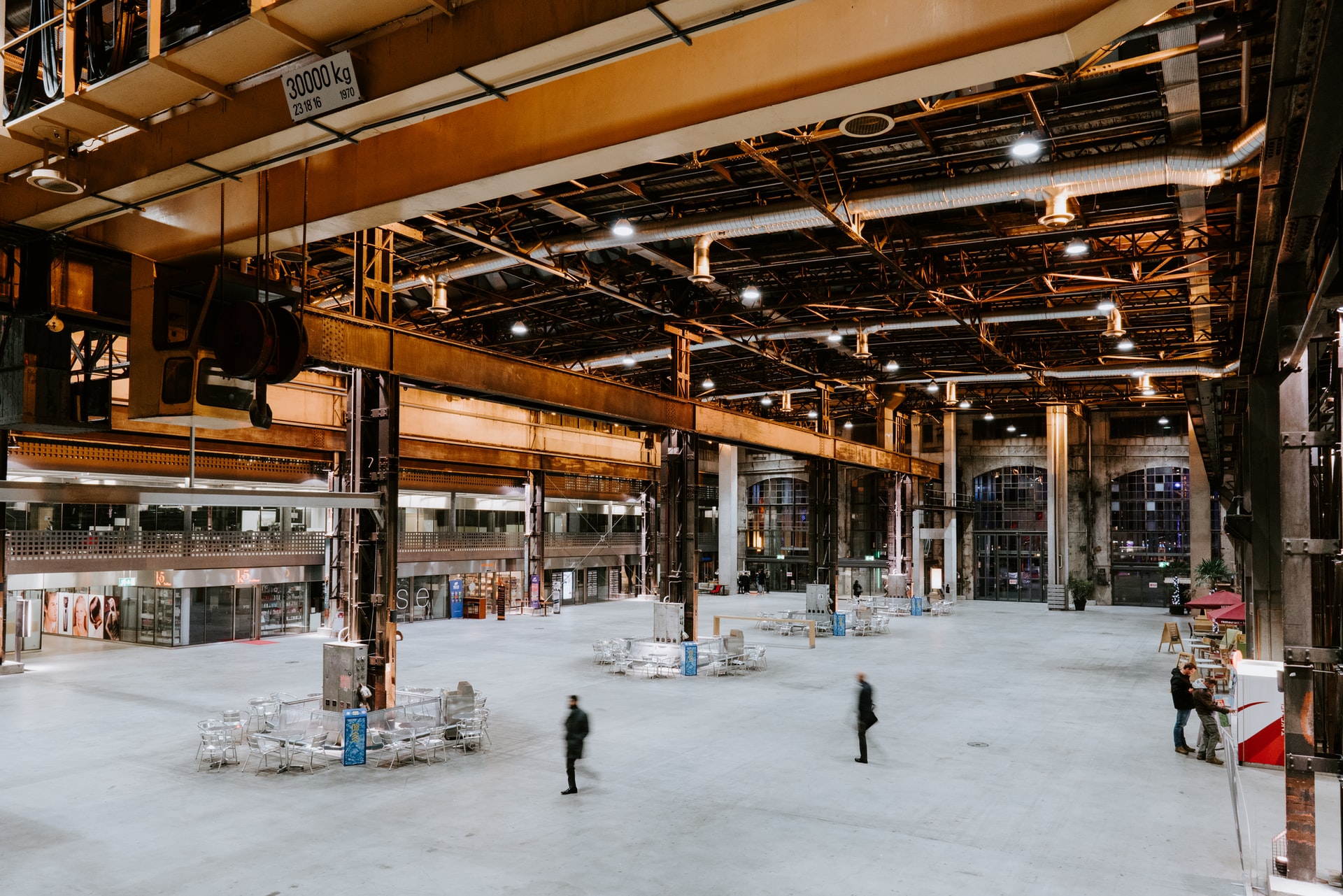Factors to Consider When Buying a Warehouse Heater
Posted by NorthStock, Inc. on Oct 6th 2021
No matter your climate region or warehouse design, you'll probably need a temperature control system to protect your equipment and keep your employees comfortable. There is a wide selection of warehouse heaters to choose from, and there are many factors to consider when deciding which one is right for your facility.
Types of Warehouse Heaters
It's important to understand your options for industrial warehouse heaters. They're divided into two basic categories: warm-air heating and radiant heating.
Warm-air heating is further divided into three major types:
- Indirect-Fired Unit Heaters: In this design, the oil or gas warms up the heat exchanger, which in turn warms the air—so the air is never in direct contact with the flame. They're typically mounted on the floor or even outside your warehouse since you can vent the warm air in.
- Electric Unit Heaters: Instead of relying on oil or gas, the heat exchangers in electric warehouse heaters are warmed by electricity. These units produce a lot of heat, they're easy to install, and they're typically efficient and cost-effective, especially if you live in an area with low utility costs.
Radiant heaters don't warm the air; instead, they warm surfaces with infrared radiation. These units are typically mounted on the ceiling, though there are floor- and wall-mount options. You can also use radiant heaters alongside warm-air industrial warehouse heaters to further customize your heating solution.

What to Consider When Choosing a Heater
There are a variety of factors that will help you determine which industrial warehouse heater is right for your space, temperature control needs, and budget.
Floor Space
You need room for equipment and foot traffic—do you also have room on the floor for a warehouse heater? Depending on the size of your space and how you use it, it may be better to choose a unit that can be mounted on the wall or ceiling.
Fuel Source
Oil-fired unit heaters are an efficient choice when natural gas isn't available. If your area enjoys low utility costs, you might go with an electric unit heater. Radiant heat is a great choice if you can't afford to have blowing air in any part of the facility. Determining your available fuel sources and comparing operating costs can help you narrow down your selection.
Heat Distribution
To avoid hot (or cold) spots, you need to ensure your warehouse heaters can distribute the warmth evenly throughout your space. In part, this means choosing a unit (or units) that is the right size for your space and the temperature difference you require. You also need to consider any racking that may block the heat from spreading throughout the room and, if you have high ceilings, you may need ceiling fans to force the warm air back down toward the floor.
Radiant heat warms the first surface it comes in contact with—it can't access something that's blocked by that surface. For example, if your radiant industrial warehouse heater is suspended from the ceiling above a loft that houses some equipment, the heat won't reach the people or equipment under that loft. In this scenario, you may require multiple heating units or different types of heaters to ensure the space is comfortable for everyone, no matter where their workstation is located.
Maintenance, Repair, and Replacement Requirements
Even the industry's best heaters wear down eventually. With the right maintenance program, you can prolong the service life of your unit, but some units are easier to maintain and repair than others. Look for heaters from trusted brands that have considered your maintenance needs and include features that make it easier to clean and maintain the unit and replace components when necessary.
At NorthStock, we maintain an extensive inventory of warehouse heaters and parts to ensure you can find what you need. With fast, free shipping in the lower 48 states, we can also fulfill your order quickly. Contact us to place your order or learn more about how NorthStock has become a leading HVAC distributor.